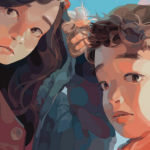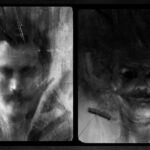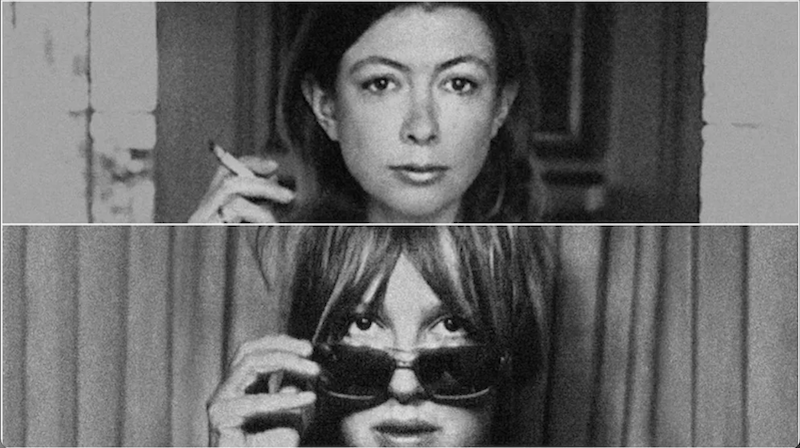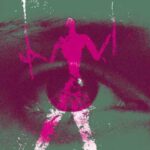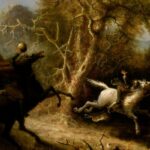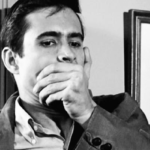I Couldn’t Read While Grieving, Until I Found These Books
The Goldfinch and Children's Classics Brought Me Back from the Brink
A couple of years ago, post divorce and my father dying within 18 months of each other, I found myself completely unable to read. I would stare at the words but nothing went in. Every page was a meaningless jumble. Nothing held my attention.
I had learned to read at a very young age, following my father’s finger under the words as he taught me how to decipher the hieroglyphics. I cracked the code immediately and from then on was the archetypal bookworm, inevitably found curled up with my latest literary crush. My tastes evolved and changed as I grew up, but books were always my safe place. Jane Eyre got me through raging chickenpox, and as I lay there feverishly I worried that I might be swept away in the night like poor Helen. Jaws by Peter Benchley got me through my first transatlantic flight to boarding school in England from the US, and reading out the raunchier passages gained me much needed new friends in a hostile environment. Jean Paul Sartre and Jean Genet were a fast-track to the pretty boys at university in the 80s. My twenties were filled with edgy smart Tama Janowitz, Donna Tartt, and Brett Easton Ellis; then motherhood softened me into books I could demolish in the early hours while feeding the babies: page-turning blockbusters that were soothing to my addled, exhausted mind.
And once I became a writer, my reading habits widened even further, for every book, whether good, bad or indifferent, should be a masterclass for any novelist; their structure, tone, characterization, dialogue and literary tricks to be absorbed like osmosis. I devoured classics and the latest must-reads with equal fervor.
So not being able to read was almost like not being able to breathe. Or losing a sense. Books were my world. Reading was my raison d’être. And this was at a time when I needed the escape of fictional worlds more than anything. My source of comfort had abandoned me in my darkest hour. Every time I tried to indulge, my eyes glazed over and my mind wandered. No character or plot or description captured my imagination. My brain felt full of sawdust. It was intensely claustrophobic, and I panicked that something awful had happened inside my brain—perhaps some neural pathways had snapped and I would never be able to read again.
I have since discovered I am not alone, and that the phenomenon is not uncommon. Grief, bereavement, stress, trauma: they can all impact on concentration, leaving even the most passionate of readers unable to engage despite repeated attempts.
Having never understood people who said they didn’t like reading, I suddenly empathized. It held no appeal. It was tedious torture. Like trying to eat a slice of dry, stale bread with no butter.
I was determined not to accept this state of affairs. I looked at it logically. I was probably slightly burnt out, perhaps a little depressed, and had a lot of things on my mind that were pre-occupying me if not consciously then subconsciously. My little brain just couldn’t cope with the overload, and had decided it was reading that had to go! I had news for my reluctant cerebrum: it was time for it to go into reading rehab and regain the power it had lost.
I decided to go back to basics. Back to the stories of my childhood that I knew and loved. Books that were part of me, passages and images and descriptions I could still recite and relive. Little Women, The Secret Garden, The Wolves of Willoughby Chase, Anne of Green Gables. The simplicity and the familiarity meant I could manage first one page, then a chapter, then finally a whole book. And as I read, the golden rules of storytelling came back to me. They were all shining examples of what makes you turn a page as a reader. And by and large it all comes down to one thing: character character character.
I felt a little more confident, yet still afraid to try unknown material. A couple of times I tried, but the mental effort involved was still too much of a strain. So I moved from my childhood favourites to adult classics I knew and loved. I was determined that my reading muscle would strengthen and I would eventually be able to take on new challenges.
I revisited the wonderful Larkin family in H. E. Bates Darling Buds of May series, each novella perfectly formed. I could remember the minutiae of all their antics, and the familiarity meant the words could go in with the minimum of effort. Ebullient Pop Larkin and his jolly, blowsy wife Ma led me gently through their world, and I began to relax.
I moved on to other series. Somehow, staying with the same set of characters and in the same setting for several books made my rehabilitation less daunting. Nancy Mitford’s elegant and eccentric Radletts, Wodehouse’s ridiculous Bertie Wooster, Anna Madrigal’s lodgers (Armistead Maupin): these were my rehab buddies, and they set me gently back on track, there at any time of the day and night to give me support.
I was feeling stronger but not invincible. I diverted onto cookery books, which seemed to work well too, especially the classic cookery writers. Elizabeth David, Nigel Slater, MFK Fisher: their vivid bite-sized descriptions of food and recipes were easy to absorb, and my imagination began to be re-fired. I’ve always found food imagery powerful and restorative, so this was a powerful tool to aid the road to recovery.
Eventually, after a long and difficult year of persuading my brain that it still loved words and stories, and that my imagination was still in there somewhere, I progressed onto page-turning thrillers and domestic noir. Not my usual genre, but the pared-back paciness was somehow easy to absorb. They were plot rather than character driven, with twists and turns rather than elaborate depth or description, but at last, I was able to follow novels I was unfamiliar with. This was a breakthrough. I felt overjoyed—and not a little relieved.
And then someone gave me The Goldfinch. I looked at it, terrified. This was my perfect read: an author I admired, an intriguing premise. But it was long and dense and unfamiliar. A challenge too far?
I opened it with trepidation. I dreaded not enjoying it and prayed that sense of mental paralysis that had now become familiar wouldn’t descend on me, when the words become dust.
By page one I was hooked. By midnight I was still reading, charmed, intrigued, longing to read on. I danced through each chapter. I woke longing to read more. I wanted to reach the end to find out what happened, yet I didn’t want it to end.
I finished it in three days. I was filled with a sense of triumph but most of all with joy. I could read again! It had been a frustrating slow process, and a frightening one at times, but at long last I had my reading mojo back.
And it was while I was taking those tentative steps back into rehabilitation that I found inspiration in the many beautiful bookshops I visited. I was standing in the middle of one of them, perusing a table of the latest fiction titles, when a feeling of perfect happiness settled upon me. Despite my woes, I felt safe and warm and at peace, and in that moment I realized I had found the perfect setting for my next book.
How to Find Love in a Bookshop is not just about romantic love—though there is that too—but about the love of books, and reading, and bookshops, and the comfort and joy and hope and companionship that they bring.
Now, as I pack for my upcoming holiday, I have a beach bag filled to the brim with books: some old classics I haven’t yet discovered (The Magus by John Fowles—how could I have missed that?) Some new commercial women’s fiction I’m reviewing. And Eleanor Oliphant Is Completely Fine, which I’ve heard so much about. I feel a flutter of excitement as I look down at them, knowing the pleasure they will bring, and send a mental note of gratitude to Donna Tartt for completing my rehabilitation.
I read, therefore I am.



